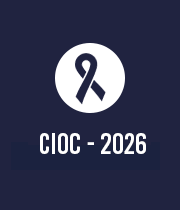Title : Investigating the role of angiogenesis in chemoresistance - The example of API-5
Abstract:
Chemoresistance is a complex phenomenon involving intracellular as well as extracellular mechanisms that needs further studies. Among them, cell death inhibition or environmental cells (fibroblast or endothelial cells) interaction are still under studies. Anti-apoptotic protein-5 (API-5) is a survival protein interacting with the protein acinus, preventing its cleavage by caspase-3 and thus inhibiting apoptosis. 78 TNBC biopsies from patients with different responses to chemotherapy were analysed for API-5 expression before any treatment. Further studies on API-5 expression and inhibition were performed on patient-derived TNBC xenografts, one highly sensitive to chemotherapies (XBC-S) and the other resistant to most tested drugs (XBC-R). We studied the effect of targeting API-5 in chemoresistant triple negative breast cancers (TNBCs), to reverse chemoresistance.
Clinical analyses of the 78 TNBC biopsies revealed that API-5 was more markedly expressed in endothelial cells before any treatment among patients with chemoresistant TNBC, and this was associated with greater micro-vessel density. A transcriptomic analysis of xenografted tumors showed an involvement of anti-apoptotic genes in the XBC-R model, and API-5 expression was higher in XBC-R endothelial cells. API-5 expression was also correlated with hypoxic stress conditions both in vitro and in vivo. 28 days of anti-API-5 peptide efficiently inhibited the XBC-R xenograft via caspase-3 apoptosis. This inhibition was associated with major inhibition of angiogenesis associated with necrosis and apoptosis.



